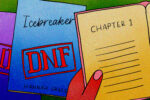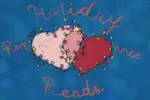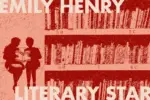Modern authors don’t tend to achieve the same level of fame as authors had in the past. With the increase in the types of existent media, it is not as common to ask someone what their favorite book is, much less if they have a favorite author. In recent years, Tik Tok sparked a new age of popularity for literature in “Book Tok.” Authors such as Madeline Miller, Taylor Jenkins Reid and Colleen Hoover have found a new base of avid fans in this community.
Prior to becoming an author, Hoover’s life was that of the everyday mother and wife living in Texas. She was grateful for her life and always happy because of the family that surrounded her. She loved writing as a hobby, and after making a successful career out of it, she wants to continue finding joy in the art.
Hoover found herself breaking through as an author later in her life. In 2012, she self-published her debut novel “Slammed” with the sole purpose of giving her grandmother something to read on her new Amazon Kindle. This novel landed on the New York Times Best Seller list four months later, sending her writing career soaring to unforeseen heights. In recent years, Book Tok has only enabled the growth of her career. Many fans posted about reading as many of her books as possible. “Hopeless” (2012), “Ugly Love” (2014) and “November 9” (2015) being some of the most popular, with “It Ends with Us” (2016) being most notable — though the book was published in 2016, it held #1 on the New York Times Best Seller List for the entirety of 2022.
Hoover’s popularity can be attributed to a number of factors. For example, her palpable passion for her writing contributes her powerful fan base. Hoover writes about topics that hit close to home for her fans, such as sexual assault, abusive relationships and miscarriage. In fact, “It Ends with Us” was a story inspired by the events of her mother’s experiences with Hoover’s father. Her honesty about her life and writing charms fans and inspires readers to trust her in telling these stories. Her writing style also is widely accessible, as it follows an easy-to-read, YA style, a style targeted towards readers aged 12 to 17. Typically, this style is faster paced and relies more on being driven by the plot, rather than intellectual and literary complexities. While she is widely acclaimed by many readers, widely contrasting opinions have been circling the internet even before her explosion of popularity on Tik Tok.
Hoover’s most popular novel “It Ends with Us” has sold more than four million copies since its release, and it is currently in production for a film adaptation featuring actress Blake Lively. The production has already received backlash from fans on the casting and costume design, and those who don’t like the work of Hoover are questioning the existence of the adaptation at all.
As someone who saw the rising popularity of “It Ends with Us,” I decided to give it a read and expected to love it as much as the next person. The premise of the novel follows a young woman living in Boston named Lily Bloom. As she struggles with the death of her father, she meets a neurosurgeon named Ryle. Lily revisits memories of her adolescence and begins an intense romantic relationship with Ryle. During her relationship with Ryle, she notices patterns of abuse in her own relationship mirroring that of her father and mother’s. While she was able to acknowledge what was happening to her was wrong, she convinced herself that Ryle would change because he claimed to love her. After marrying and having a child with him, she later escapes of the relationship, ending the patterns of generational abuse with her and her daughter and stating: “It ends with us.”
Critics of Hoover’s work call attention to her struggle to develop female characters and believe that the way she goes about describing scenes romanticizes domestic violence. Using “It Ends with Us” as an example, the depth of Lily doesn’t go far beyond the way she was perceived by the male characters in her life. The opening of her business, “Lily Blooms Floral Shop” is the extent of her personal endeavors and interests. As for the romanticism of violence, her novel “Ugly Love” gives the perspective of a male character, Miles, as he struggles with violent thoughts towards his partner, and the audience seems to be expected to sympathize with him because of his troubled past.
This criticism is only fueled by the fact that the way she develops her characters is exactly where fans attribute the most praise. A five star review of “It Ends with Us” on Goodreads describes their admiration for Lily’s character: “Her strength and conviction over the course of this story made her into a heroine I’d want every girl and woman to read about and look up to. She was so real and vulnerable as we all are, but the strength with which she took control of her life was admirable on such a deep level.”
These differing opinions boil down readers’ different personal reactions to trauma. While some find it comforting to read these stories in the style of a YA novel, others may find it triggering. As for the film adaptation, critics are concerned by Hoover’s ability to properly address violence, and fans are concerned how well the film will capture the heart of one of their favorite books.
Other complaints include the the casting of Blake Lively as Lily, since the character was in her early 20s in the book, but Blake Lively is a 35-year-old actress. In Hoover’s interview with Today, she addressed the backlash, admitting that she wrote the characters as young adults because that was popular at the time. She is nonetheless happy with the casting choice because she thinks the story makes more sense with aged up characters.
Even for those who critique Hoover, the way she address hate reveals a charming side of her personality. In a recent series of interviews with Time, Hoover states, “There are so many writers who are such good, literary writers who have been hoping to hit the New York Times or find their audience for years.” Hoover’s Twitter bio says one thing: “I don’t get it either,” in reference to her popularity. As her fame continues to grow, she stays humble by accepting both sides of the opposing opinions towards her work.
Hoover is an open-minded author, amenable to critique, proving herself as a strong storyteller. The fact that Hoover can admit to the mistakes in her novels and be so open to changing some of her choices for the adaptation suggests that fans and critics alike may respond positively to this film.
















